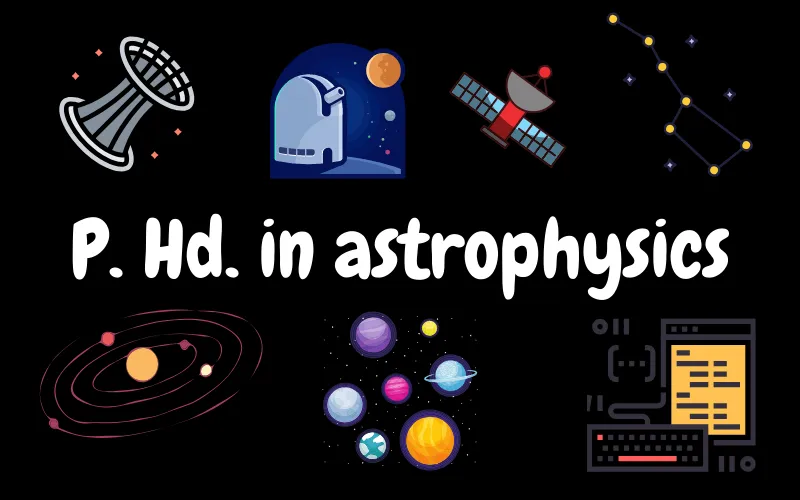Introduction:
A Ph.D. in Astrophysics is a rigorous academic program designed for individuals passionate about the study of celestial phenomena. This degree involves deep exploration into the workings of the universe, from the smallest particles to the largest galaxies. Candidates engage in advanced theoretical coursework, hands-on laboratory experiments, and extensive research projects, often contributing original findings to the field. Graduates are equipped with the skills to conduct independent research, solve complex problems, and advance the frontiers of science.
Admission Process:
- Application Submission: Candidates must submit a detailed application, including personal and academic information.
- Prerequisite Degrees: A master’s degree in physics or a closely related field is typically required.
- Standardized Tests: GRE general and Physics subject tests may be required.
- Letters of Recommendation: Strong endorsements from academic professionals who can attest to the candidate's suitability for research.
- Research Proposal: Submission of a research proposal outlining the intended study and research goals.
- Interview: An interview with faculty members to assess the candidate’s commitment and potential.
Eligibility:
- Master’s degree in physics, astronomy, or a related field
- Demonstrated experience in research or relevant academic work
- Proficiency in mathematics and scientific computing
- Strong academic record and letters of recommendation
Completion Time:
Typically, completing a Ph.D. in Astrophysics takes between 4 to 6 years, depending on the research topic, the complexity of the dissertation, and the candidate's pace. The program begins with coursework, followed by examinations to assess depth of knowledge. The bulk of the time is devoted to conducting original research, culminating in a dissertation that contributes new knowledge or insights to the field of astrophysics.
Career Opportunities:
- Academic positions (professor, lecturer)
- Research roles in government and private sectors
- Positions at observatories and planetariums
- Data analyst roles, particularly in large-scale astronomy projects
- Consulting in aerospace and related industries
Syllabus:
- Advanced Quantum Mechanics
- Stellar Dynamics
- Cosmology
- High-energy Astrophysics
- Computational Astrophysics
- Observational Techniques
Internship Opportunities:
- Internships at NASA or ESA
- Research internships at major observatories
- Summer research programs at universities or research institutes
Scholarships and Grants:
- University-funded fellowships
- Grants from astronomical societies
- Government and private research grants
- International scholarships for study abroad
FAQs:
How competitive is admission to a Ph.D. program in Astrophysics?
Highly competitive, with a focus on academic excellence and research potential.
What skills are crucial for success in this Ph.D. program?
Strong analytical skills, proficiency in programming, and a solid foundation in theoretical and experimental physics.
















